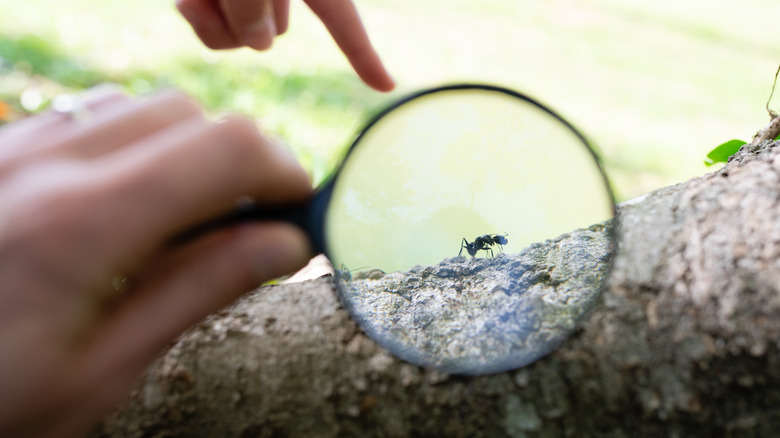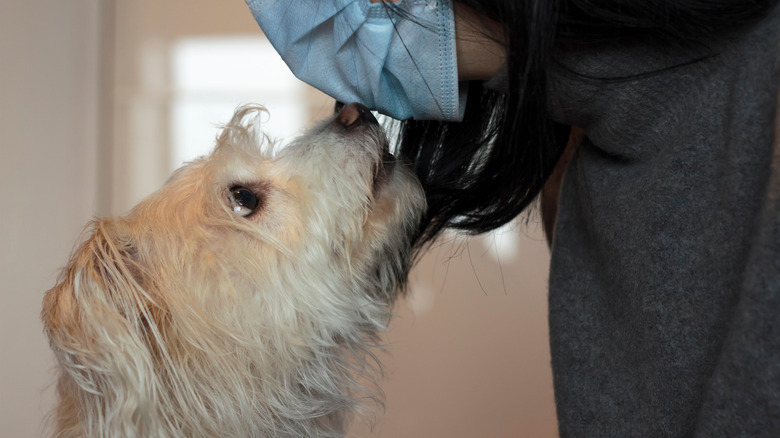The Possible Future Of Cancer Detection Isn't What You Think
The thought of a colony of ants running towards you probably makes you want to run in the other direction, but in the future, the tiny insects could be used for diagnosing cancer and potentially saving lives.
A team of researchers in France set out to discover if Formica fusca ants, which are known to be quick learners, could be trained to sniff out cancer cells (via Science Focus). Cancer cells produce volatile organic compounds (VOCs), which carry an odor that is detectable by species with highly sensitive noses, like dogs, and now apparently, ants as well.
Ants do not actually have noses but detect odor through their antennas. Dr. Baptiste Piqueret, a researcher at Sorbonne Paris Nord University and lead author of the study, said, "Using olfaction to detect diseases is not a novel idea." And Dr. Corrie Moreau, an evolutionary biologist and entomologist at Cornell University, adds, "Since ants are already well-attuned to detecting different chemicals, this makes them ideal for scent recognition" (via WebMD).
Why ants may be a better option than dogs
The scientists of this new study published in iScience grew breast cancer cells and exposed the ants to them along with healthy cells. They then rewarded the ants with a sugary solution every time they correctly identified the cancer cells. The ants quickly learned to seek out the cancer cells in the hopes of getting the reward.
Dogs have been used to sniff out diseases for years, but they are expensive and time-consuming to train. The ants, on the other hand, learned to sniff out cancer cells quickly. Dr. Piqueret stated, "Although we need to test deeper the abilities of ants in terms of bio-detection, this proof of concept shows that ants can learn extremely fast — less than 30 minutes for most of the individuals — with a low cost method that can be achieved by anyone after a couple of days of training" (via Science Focus).
As promising as it might be, the scientists acknowledge that we are still quite a ways off from using ants for diagnosis. Questions remain about how long the ants will remember their training and how long they can be kept in a lab for testing.


